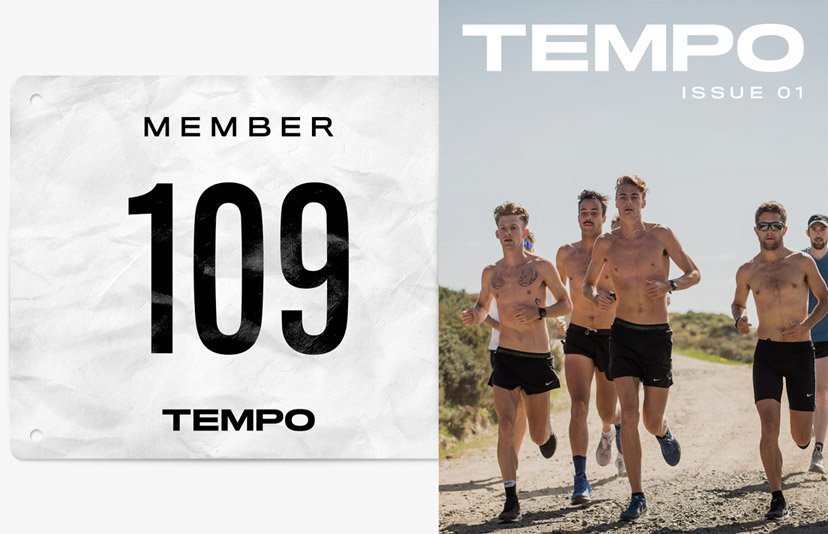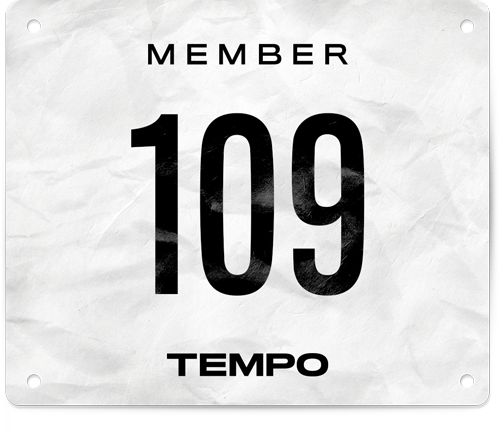Culture
Take Back the Track
The Movement to Make Running Safer for Women and Gender-Diverse People
Editor’s note: Ahead of the inaugural national Take Back the Track Day on Sunday 16 February, we caught up with the movement’s founder, Sissy Austin. You can find Take Back the Track events near you on the organisation’s website.
Cover image credit: Mitch Nivalis
Sissy Austin wants to be clear about one thing: Take Back the Track is a movement born from love, not fear.
“It’s a movement that celebrates a love of running and the joy it activates in women and gender-diverse people across the country,” Sissy explains. “But it’s also a movement where we’re saying enough is enough to the violence and harassment that too many women and gender-diverse runners experience whilst running.”
Nearly two years ago, Sissy – a Peek Woorroong, Keerraay Woorroong, Djab Wurrung First Nations woman – was violently attacked while running in the Lal Lal State Forest outside Ballarat. She was knocked unconscious, suffered a concussion and had to struggle to find her way back to her car. But rather than let this experience steal her love of running, Austin has transformed it into a catalyst for change.
“Women and gender-diverse runners across the country are now rising collectively to say we have a right to run free from fear, violence and harassment.”
Sissy Austin
On Sunday 9 February, Take Back the Track was officially launched in the Cathy Freeman room at Athletics House in Melbourne’s Albert Park, home to Australian Athletics and Athletics Victoria. The significance of launching in a space named for Freeman – both a running legend and an Indigenous hero – wasn’t lost on anyone present. This Sunday 16 February, this new movement goes nationwide with a series of grassroots events organised for the inaugural Take Back the Track Day.
Take Back the Track grew out of Sissy’s determination that what happened to her wouldn’t stop her running. “Following the assault, I allowed myself permission to fall apart safely into the arms of my community for a period of time, before putting the runners back on and subsequently training for my first marathon, under the guidance of the Indigenous Marathon Project and the broader runner community,” Sissy writes for IndigenousX.
“Through the tears I cried on the first few runs after the attack, I kept a strong hold of the determination to not allow anyone to steal from me my love and connection to running.”
“We love running just as much as our male counterparts and have a right to experience that same boundless and unapologetic freedom out on the track.”
Sissy Austin
Just months after the attack, with support from the Indigenous Marathon Project, Sissy completed the 2023 New York City Marathon. She followed this with marathons in Ballarat and Melbourne – three marathons in twelve months. Looking ahead, she’s about to start training for the Gold Coast Marathon in July.
“I went through a long healing journey to get here”, Sissy says. “But I wouldn’t be here without the likes of Rob de Castella and the Indigenous Marathon Project. Following the attack, Rob and head coach Damian Tuck trained me as part of their squad to run the 2023 New York Marathon. And that’s a male ally in itself: Rob’s backing of not only my recovery after the attack but also his support for the Take Back the Track movement.”
Now she’s channeling the same determination it takes to run three marathons in a year into Take Back the Track. The movement’s urgency is underscored by sobering statistics. According to a 2024 survey of almost 2000 people conducted by ultramarathoner Turia Pitt, another key Take Back the Track supporter, 87% of women have experienced at least one form of verbal or physical harassment. These unacceptable forms of male behaviour range from catcalling and intimidation to being followed or filmed without consent, up to, as we know, physical violence and murder.
“We’ve just gotten through the one year anniversary of Samantha Murphy’s death in Ballarat, running. This is why I’m launching this national day in February.”
Sissy Austin
More than 90 organisations and individuals have already registered to join Take Back the Track, and as part of that process they are invited to share their experiences. “Women are going into depth about their traumatic experiences. It goes from all different ends of the scale,” Sissy says. “And then, you know, we’ve just gotten through the one year anniversary of Samantha Murphy’s death in Ballarat, running. This is why I’m launching this national day in February in particular. Because I was running in the same area as Samantha Murphy just one year before, and our anniversaries are only six days apart.”
Almost entirely, it’s men who perpetrate violence against women. And so it is men who have a role to play in making violence and harassment culturally unacceptable, as well as being allies out on the trails.
De Castella, a former world champion marathoner who's now director of the Indigenous Marathon Foundation, says men need to call out poor behaviour.
“If you’re out there running or if you’ve got a mate who, you know, hangs out the window and catcalls or harasses women, you need to stand up and call it out as unsatisfactory behavior,” Rob says.
“If there are opportunities for us to link up and run with women so they can run anywhere, anytime, wearing anything that they want, and not feel uncomfortable or threatened, I think that’s really important. Men need to have some empathy and understand that it’s not good enough that women and minority groups don’t feel comfortable and don’t have that same degree of access or comfort when they’re out running and exercising.”
“Running is one of the most beautiful, most powerful things you can do for your physical health, your mental health and working in social connection. It’s so important that we minimise any barriers,” Rob says.
“Men need to have some empathy and understand that it’s not good enough that women and minority groups don’t feel comfortable and don’t have that same degree of access or comfort when they’re out running and exercising.”
Rob de Castella
Sissy says something similar when she writes, “I love the connection running provides to body, both physically and mentally; it is an outlet that is on your door step, or down the road to your favourite running track.”
And that’s something everyone deserves to experience. “Women and gender-diverse runners across the country are now rising collectively to say we have a right to run free from fear, violence and harassment. We belong on the track and we will not be allowing men’s violence to rob us of our love and connection to running,” Sissy writes for IndigenousX.
Olympian Steve Moneghetti is another prominent Take Back the Track supporter. He’s long known Sissy as a part of his hometown Ballarat’s running community, and his daughter attended school with her at Clarendon College. He believes ensuring women and gender-diverse people are safe to enjoy running is a necessary part of a broader change taking place in the sport.
“Why shouldn’t [running] be inclusive for everyone? I would hate to think there’d be a proportion of the population who say, ‘Oh, we’d love to run, but we don’t feel comfortable.’”
Steve Moneghetti
“I’ve been running for almost 50 years now and I’ve seen that it used to be a male-dominated thing, but it’s transitioned now and at a lot of running events there are more females running than males,” Steve says.
“I think it’s educating people and this is a positive initiative. Hopefully we’ll get to a stage where there’s female running groups, there’s female-and-male running groups, there’s LGBTQI+ groups, all of which are happy to get out and enjoy it. Because running’s booming, and I see the great benefits that you get for your mental health as well as the physical benefits.
“Why shouldn’t that be inclusive for everyone? I would hate to think there’d be a proportion of the population who say, ‘Oh, we’d love to run, but we don’t feel comfortable.’ Well, that will take some education and by highlighting things like Take Back the Track, then that’s raising awareness and education for all of us.”
For Sissy, the movement is about freedom as much as it is about safety. “We love running just as much as our male counterparts and have a right to experience that same boundless and unapologetic freedom out on the track,” she asserts.
This Sunday, on national Take Back the Track Day, individuals and groups across Australia will dedicate their runs to the movement’s vision. As Sissy wrote recently on Instagram, “Take Back the Track invites runners across the country to join us on this journey of reclaiming our right to run free from harm and calls on men to run in solidarity with us.”
The movement welcomes both individual runners and groups. Some participants will simply dedicate their regular Sunday run to Take Back the Track, while others are organizing community events. To find an event near you or register your own run, visit the Take Back the Track website.
“What I really want,” Sissy says, “is for women and gender-diverse runners to feel less alone, to feel validated and a sense of belonging and safety when running.”


